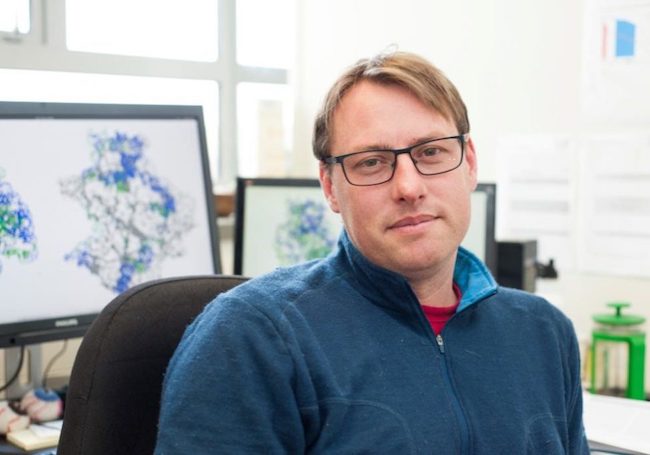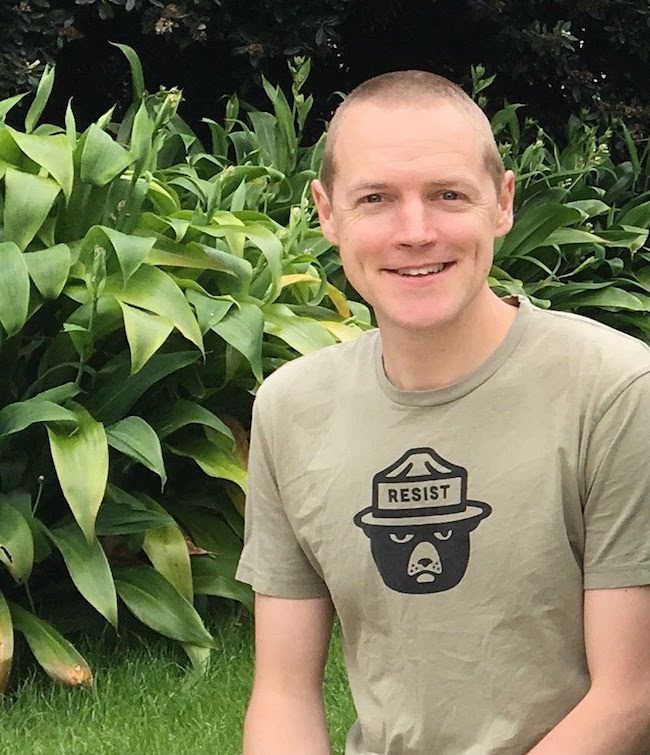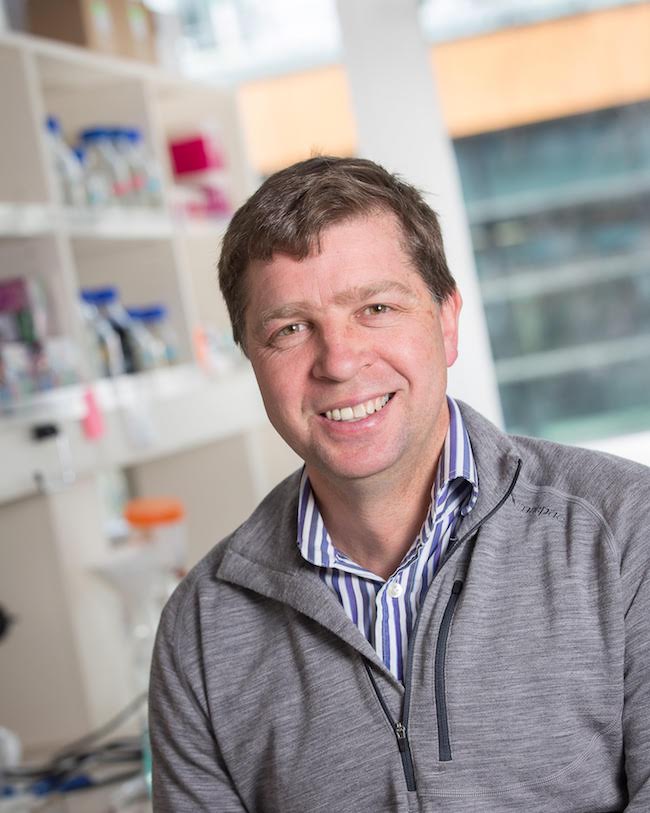Thursday 6 February 2020 12:06pm
As of February 1st, three lecturers at Otago Biochemistry have new titles; Richard Macknight is now a professor, and Peter Mace and Paul Gardner are now associate professors. The University of Otago announced the promotions late last year, which are given to recognise the hard work, skill, and dedication of its academics.
To be promoted, the University evaluates an individual’s contributions to research, teaching, and service. Assessments by international experts of the candidates’ research contributions are also considered.
These Otago Biochemistry group leaders have each published widely in their areas of research interest, and won numerous grants to support their research from across New Zealand’s major funding agencies.
Congratulations too, to Tanis Godwin, who has been promoted from Assistant Research Fellow to Research Fellow, on the basis of her outstanding research work with the the Cancer Research group.
Richard is a plant biologist who aims to understand how genes control agriculturally important traits in plants. He is particularly interested in the genes that enable plants to flower (and then produce fruit or grain) in response to seasonal cues, such as winter cold and the increasing day length of spring. Understanding the genetic basis of this trait can aid the breeding of crops better suited to local environmental conditions. Richard and his colleagues also work closely with researchers from the Crown Research Institutes and plant breeding companies.
 Associate Professor Paul Gardner
Associate Professor Paul Gardner
Gardner Lab website
Paul carries out his research using bioinformatics, computational tools used to organise, analyse and understand biological macromolecules. He is particularly interested in RNA, a type of molecule similar in shape to DNA. However, whereas cells use DNA just to store information, they use RNA for many different jobs, including coding, decoding, regulation and expression of genes. Paul finds out about what non-coding RNAs do, and what impact RNAs interacting with other RNAs have on translation. He also analyses variation between different but related genomes, and improves the tools that bioinformaticians use in their research.
 Associate Professor Peter Mace
Associate Professor Peter Mace
Peter aims to understand the molecular signalling networks that control how cells respond to stress, with the ultimate goal of making better treatments for cancer and inflammatory diseases. These signals come in the form of molecular ‘tags’, which are stuck onto particular proteins during processes called phosphorylation or ubiquitination. The right ‘tag’ stuck on the right protein at the right time might tell a cell to die, or to multiply, depending on circumstances. Peter’s research uses tools such as X-ray crystallography, biochemistry and biophysics to explore exactly how specific proteins are modified, and what effects this has on the molecules further along the signalling pathway.

 Professor Richard Macknight
Professor Richard Macknight